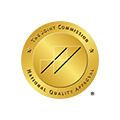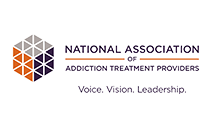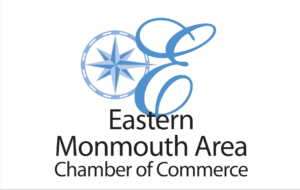Drug and Alcohol Treatment in New Jersey
Outpatient Program
Individual Therapy
Weekly one-on-one sessions with a licensed therapist
Intensive Structure
Structured treatment programs during the day, providing a supportive environment similar to inpatient care but allowing individuals more flexibility in the evenings.
Holistic Approach
Holistic therapies such as yoga, mindfulness meditation, art therapy, and recreational activities to promote overall well-being and address the mind-body connection.

Group Therapy
Tailored to address addiction and underlying mental health issues.
Medical Supervision
Staffed with medical professionals who monitor individuals' health and manage medications to address withdrawal symptoms or co-occurring medical conditions.
Transition Support
Assist individuals in transitioning to lower levels of care or outpatient treatment, providing aftercare planning and ongoing support to maintain sobriety and prevent relapse.
What Is An Outpatient Program?
An Overview of OP
If you are thinking of treatment for a drug or alcohol abuse issue, you may want to know more about an Outpatient Treatment option. It can help you get therapy and counseling while you are living away from the facility, most likely at home. We offer this option because it is more convenient for those with families or who are working and cannot take time off.
What Are the Levels of Care?
There are several levels of care that begin from the moment you check into a rehab facility. These include:
• Residential treatment and detox
• Outpatient- OP
• Intensive Outpatient – IOP
• After care
What is the Difference Between Residential and Outpatient Care?
In a residential program, called Inpatient rehab, the patient stays at the facility; it may be more costly but has a higher success rate. The program can last from 28 days to six months. Detox is part of this program, and medical attention is available 24/7. On the other hand, there is Outpatient Rehab and treatment. Detox can be done while you’re in an outpatient program, if the withdrawal symptoms are mild to moderate. Withdrawal from drugs usually lasts about 5 to 6 days. Clients undergoing outpatient rehab detox must visit a rehab facility or hospital for checks while they are undergoing this detox. They must be available to physicians if medicine is needed. Some facilities may be registered to provide only one type of care, so be sure to check that they have an outpatient option.
Outpatient Treatment Choices
Outpatient care means that you will be going to treatment during the day but returning home at night. It is more affordable than inpatient care. It can last from three months to over a year. While in this program, you can maintain a social circle of support and may be going to meetings, such as AA. If you are mildly addicted to a substance, this might be the right choice for you. You will be able to go home nightly to spend time with family as well as keep a circle of friends for support in your recovery. You can use your cell phone when not in therapy or meetings, and continue on with your life, gaining options for a lasting recovery. You’ll be in therapy or a recovery program for approximately 10 to 12 hours a week at the treatment center. Meeting are usually held at night, allowing no disruption from working hours during the day. Alcoholics Anonymous (AA) and Narcotics Anonymous (NA) are often used for outpatient services. These groups have been shown to be successful and can help you stay sober for the long term.
The Advantages of Being in Outpatient Care
Whichever treatment you choose, the important thing is to get treatment. Outpatient care does offer an opportunity for distractions as well as a family and social support system.Find out more about addiction treatment for drugs or alcohol and how it can open up a new world of recovery and sobriety. Why let addiction rule your life; it is precious and should be filled with positive and enjoyable activities. Give us a call to find out more about our Outpatient program.
- Individual Counseling
- Group Therapy
- Medical Supervision
- Skill Building
- Holistic Approach
- Transition Support
Most Major Health Insurance Accepted
We work with most major health insurance carriers. Often times insurance can cover up to 100% of your treatment costs. Contact us today to get started. Verification of benefits can be done right away. Don’t worry if you don’t see your health insurance listed here. We can help with many different plans.
- BCBS
- Aetna
- Anthem
- Tricare
Today Is The Day
You Never Have To Feel This Way Ever Again
One simple call to our caring and compassionate staff, and you can be on your way to a lifetime of freedom and recovery

As Seen On Hulu
Seacrest Recovery Center is The Featured Drug & Alcohol Rehab on Jelly Roll's Save Me Documentary on Hulu Originals
Trusted Treatment Provider
Certified and Accredited Both Locally and Nationwide



Our Clients Believe In Us
And We Believe In Them!
Here Is What They Are Saying
About Seacrest Recovery
Your First Step To Recovery
Our Locations

Columbus OH

Eatontown NJ

Willard OH

Cincinnati OH
More About An Outpatient Program
Outpatient Program
Treating addictions has progressively become a more complex task. There was a time not so long ago that clients reported to a rehab, received placement in a residential treatment program, and submitted to basic therapy. The problem with this approach was the recovery data kept suggesting things were not working. In recent years, rehab facilities like ours have taken a more pragmatic approach in treating addictions. In our case, we decided we needed to offer a wider range of treatment options for us to meet the unique needs of a growing population of addiction sufferers. The cornerstone of our treatment profile is still residential treatment. In many cases, clients need the safety and constant monitoring they would get in a residential program. With that said, residential treatment is not always necessary or possible. We see clients all the time that have personal conflicts that make residential treatment a nonstarter. That’s why we also offer a full range of outpatient treatment options.
Details About Outpatient Treatment
When a client can’t or won’t submit to residential treatment, it doesn’t diminish the fact they still need help. An outpatient program is often the next best option. To help you better understand what outpatient care entails, we want to start by listing the three most prevalent outpatient options: Partial Hospitalization (PHP). Intensive Outpatient (IOP) and standard Outpatient (OP). PHP is by far the most restrictive outpatient option. We require clients to report for treatment at least five days a week for at least six hours a day. At the lower end of the scale of restrictiveness would be standard Outpatient or OP program with IOP falling somewhere in the middle. In all three cases, individual therapy is the cornerstone of treatment with the amount of time and effort invested towards treatment being a differentiating factor. If we were to place you in a PHP or IOP program, you might also spend time performing specific tasks and participating in group sessions. At this point, we would like to shift the focus towards a standard OP program.
About Standard Outpatient Treatment
When we assign clients to a specific treatment program, we start by seeking the least restrictive option possible as long as the client gets a solid chance of recovery. Standard OP is the least restrictive option. In most cases, clients would only need to report for treatment one or two times a week for usually no more than two hours a session. We reserve this option for clients with mild to moderate addiction issues or clients who are wrapping up the treatment process. If you were to enter our rehab with a moderate addiction issue and the ability to represent responsible behavior, OP might be your best option. During your time in our facility, you would work with a therapist to learn the truth about your addiction. As part of the counseling process, you would also spend time working on your ability to cope with stress and the triggers that seem to ignite your need to take drugs or drink. As for expectations, the rules are simple. You do not use drugs or drink for any reason. You show up for therapy on time, and you put forth the effort to establish your sobriety. If you do well, there’s a good chance you will finish treatment in 30 to 60 days. If you struggle, we hope you will be open and willing to step up a level or two in treatment. Your struggles might indicate nothing more than you need to be spending more time in treatment with a little bit more structure as part of the process.
- Individual Counseling
- Group Therapy
- Medical Supervision
- Skill Building
- Holistic Approach
- Transition Support
Most Major Health Insurance Accepted
We work with most major health insurance carriers. Often times insurance can cover up to 100% of your treatment costs. Contact us today to get started. Verification of benefits can be done right away. Don’t worry if you don’t see your health insurance listed here. We can help with many different plans.
- BCBS
- Aetna
- Anthem
- Tricare
